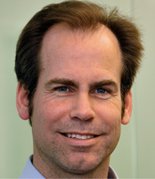Fat cells, a necessary part of the body, are a growing area of research for scientists as a concerning rise in metabolic illnesses has shifted the field’s focus to the biology and chemistry of fat. University of Pennsylvania School of Engineering and Applied Science professor, Dennis Discher, is one scientist looking into how fat cells work.
Dennis’s research led to a groundbreaking study that proves fat cells are more than just a number on the scale – his team found fat-filled lipid droplets hold a surprising capability to indent and puncture a cell’s nucleus, where DNA is held. The finding is alarming considering a ruptured nucleus can lead to elevated DNA damage, a characteristic of many diseases, including cancer.
- The solutions and drug treatments that may prevent nuclear damage by fat droplets
- How this research has aided in understanding aging and related conditions where the cell cycle is suppressed
- How the research will continue through the study of immune cell functions, including possible anti-cancer functions.
